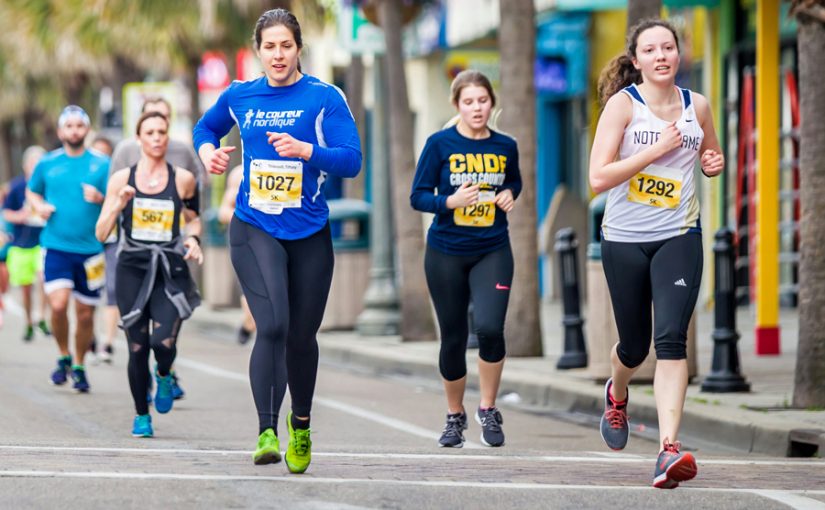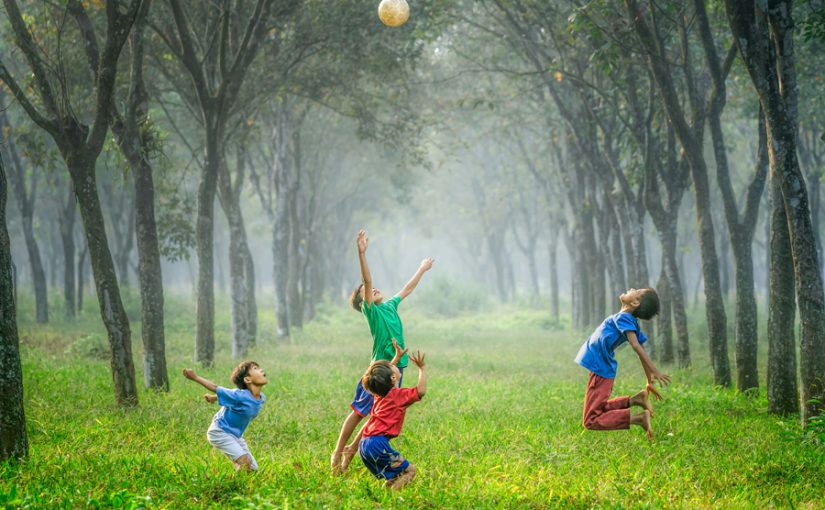Not exactly a homily for the Sixth Sunday in Ordinary Time, February 16, 2025
Jeremiah 17:5-8, 1 Corinthians 15:12, 16-20, Luke 6:17, 20-26
I delivered this as a keynote at the Pilgrims of Hope Retreat, which focused on Catholic Social Teaching and Justice.
The other day I was at Costco, loading paper towels and birdseed – but no five-dollar chicken or two-dozen tray of eggs – into the back of my car. With the hatch down, I started to wheel my shopping cart over to the corral.
As I passed two open spaces a few cars down from mine, I noticed that the reason those spaces were open on a busy shopping day was that somebody had left one of those big orange dollies right in the middle of them.
I did not think nice things about whoever did this.
I kept wheeling my shopping cart to the stack of other carts, and I spotted a Costco worker pushing a train of some other orange dollies toward the entrance door. I told him about the dolly over in the two open spaces and he thanked me.
I also said some of the nasty things I was thinking about the unknown dolly-dumper, and the employee agreed with me and shrugged.
Shame on us both…
Then I headed back to my car, got to the driver’s door, started to open it, and then shut it again.
Something told me to wheel the dolly where it belonged, so I did. I think it took me all of two minutes.
The same two minutes it would have taken the other person.
Now, I wasn’t trying to steal the job from the Costco employee. This just seemed like the right thing to do. I’m sure he would have found the orange dolly where I said it was, and I’m sure this wouldn’t have been the first time had had to pull a dolly or a shopping cart or a stack of empty boxes from somewhere they didn’t belong.
And some people would say this wasn’t my place.
But I disagree. By doing something as simple as this, I freed up two decent parking spaces that somebody just like me would otherwise have had to pass by. And probably would have been annoyed about. Maybe annoyed enough for the whole incident to ruin their day, or at least dampen it.
So what I did qualified as a random act of kindness, or, in broader-brush terms, a small charity.
We’re not into justice quite yet.
To start on our way there, let’s begin with a hypothetical scenario you may have heard before:
You’re taking an afternoon walk on a riverbank when you spot somebody thrashing around in the water, and as they get closer to you, you can hear them calling for help. Their calls get fainter and fainter, and you know they’re going down for the third time.
You remember your old lifesaving merit badge class: Throw, Row, or Go. With no life preserver or boat nearby, your only option is Go. So you kick off your shoes and throw off your coat, and soon you are hauling a total stranger ashore. Who knew you could still do a cross-chest carry?
No CPR needed, thank God.
This is charity on a bigger scale.
Please hang in there; the justice part is coming.
The next day, you are out for a walk on the same riverbank, and another young person is heading downstream.
What is going on?
One thing is for certain: It’s Throw, Row or Go time again, and just like yesterday, in you go. Another life saved because you did a big act of charity.
So now it’s the third day, and you’re on the riverbank, but today you’re walking upstream of where you’ve gotten wet and tired the last two days. You see a basketball court near the river, with kids playing, and one of them shoots and misses, and the ball rolls down near the river.
As one of the players slides down the bank to retrieve the ball, you holler “Stop!” The youngster jams on the brakes, slides a little farther, but comes to a halt just before he hits the water.
You’ve just achieved Step One of everyday justice: You recognized a problem that exposes people to dangerous conditions. There’s no fence or other barrier to keep players – and their basketballs – from falling into the river.
You look around some more and find out that this is a town-owned park, and decide you need to let somebody at Town Hall know about ballers nearly drowning.
That’s Step Two: devising a solution. This one’s obvious – the park needs a fence or a big net like the ones at baseball stadiums or driving ranges.
For Step Three, you actually go to Town Hall, find somebody who runs the Parks and Rec Department, tell them about the near-drownings and let them know how much that fence or net is sorely needed.
Charity is saving a life. Once, twice, maybe every day. Maybe it’s called for every day. And charity – love – is critical, especially today. Especially in the current political climate.
But justice eliminates or at least greatly diminishes systems that threaten lives, that threaten people’s well-being.
Through charity, you pull people out of the river. Through justice, you go upstream to find out why they’re falling in, and you take that knowledge to form a plan and either act on it yourself – if you can – or take that plan to people in authority who can.
And you don’t take no for an answer. You speak out. You protest. If necessary, you chain yourself to a fence. If necessary, you spend the night in jail.
Everyday Justice can be worth it.
How can we get involved with Everyday Justice?
First, Everyday Justice requires a lot of looking.
We start by looking within, with a sense of realistic humility.
That means we recognize within ourselves what we’re really good at, in our thoughts and actions; what we’re OK at but getting better at; and what we should leave for somebody else.
And it’s perfectly fine – in fact, it’s absolutely critical – for us to acknowledge that we’re pretty darned good at some things. That maybe even we’re the best.
Because our skills and talents and imagination and intellect and everything about us are gifts from God, and God expects us to use them to the fullest.
Can we coach sports? Can we teach STEM or religion and philosophy? Are we artistic? Computer-savvy?
Can we get up in front of a crowd and praise what’s right and spotlight what’s wrong in a group, a town, a social environment?
Once we’ve looked within, once we’ve realistically inventoried the gifts we carry with us in our daily backpacks, we can and must look around ourselves. We must identify what’s wrong with our world. We must identify what’s unfair, what’s unjust. And there’s plenty. There’s plenty wrong with our world, and there are plenty of opportunities for us to fix what is.
I never said this would be a piece of cake. Everyday Justice demands some huffing and puffing, some elbow grease and some sore muscles.
Based on our knowledge of ourselves, each of us is called to use our gifts the best way we can to benefit others by fixing unjust systems. Fixing systems of government and all social and economic systems forged by racism, sexism, ageism, ableism, homophobia, xenophobia … all the isms and phobias that put me waaaay up here and you waaaay down there. Systems that preach “that’s the way it is,” “we’ve always done it that way,” “you’re not worthy.”
The God who created each of us in his divine image disagrees quite vigorously. God created us female and male, tall and short, funny or serious, speaking more tongues than the citizens of Babel, pigmented in every beautiful color of the rainbow, and sharing a common race, the human race. The family of humankind.
With an emphasis on “kind.” With an emphasis on healing the wounds of the world.
You see, when we recognize injustice in the world, we realize that God has a message for us, and we need to hear it. We need to listen closely to it.
We need to listen to God’s call to action. God’s CTA.
The individually tailored CTA God delivers to us.
My CTA. Your CTA.
Individually tailored to our skills and talents and attitudes and likes and dislikes and availability of free time.
Delivered once per life, for some of us, as our vocations.
Delivered daily for some of us, because God knows those among us who have boundless energy and enthusiasm and time and talents.
Artists can produce posters and memes and work with techies to rally people to agitate for fences and nets to keep the kids from falling in. Coaches can help those same players to miss fewer shots, so they’re dribbling more and chasing loose balls less.
Etcetera. Etcetera. Etcetera.
And every person’s contribution to Everyday Justice through the seven pillars of Catholic social teaching is an essential piece of the big puzzle we know as God’s plan for humankind.
Just as a reminder, please allow me to quote what theologians say about social justice, formalized about 130 years ago but exemplified two millennia ago by some wacky rabbi named Jesus.
By the way, this Jesus guy just happened to be the Son of God, our Messiah. He was treated unjustly and rose above it. We can do no less.
So, the seven pillars:
- Human dignity: The Catholic Church believes that human life is the most sacred thing on earth.
- Call to family, community, and participation: Catholics are called to be active in their communities, using their faith to shape their actions and decisions.
- Rights and responsibilities: Human rights must be protected and responsibilities met to protect human dignity and achieve a healthy community.
- Option for the poor and vulnerable: The moral test of a society is how it treats its most vulnerable members.
- The dignity of work and the rights of workers: The economy should serve people, not the other way around.
- Solidarity: Humans are social by nature and depend on each other. We should stand in unity with each other, especially those who are disadvantaged or powerless.
- Care for God’s Creation: We show respect for the Creator by caring for the earth and living in relationship with all of God’s creation.
That description, just now, of the seven pillars, is loaded with action verbs and phrases. Using faith. Protecting rights. Achieving health. Promoting human dignity. Standing together. Uplifting the marginalized. Caring for Creation, whether animal, vegetable or mineral.
We are called to weave every one of these pillars into the fabric of our lives.
We are called to weave every one of these pillars into the fabrics of our children’s lives, so they know no way of life other than fairness, justice and God’s peace.
We are called to action individually and together as the Body of Christ.
Yes, we are called to heal the world.
Yes, we each must ask and answer:
What is my CTA?
Am I working for justice every day?



